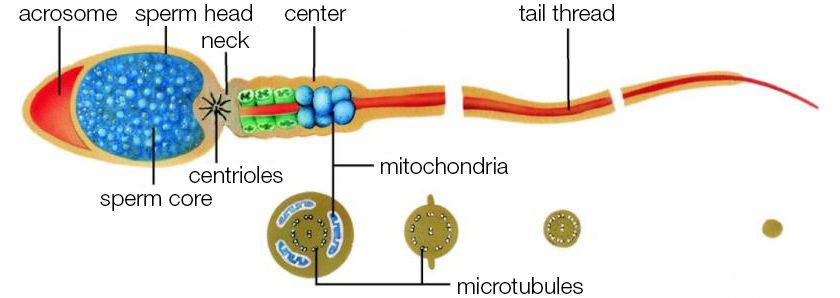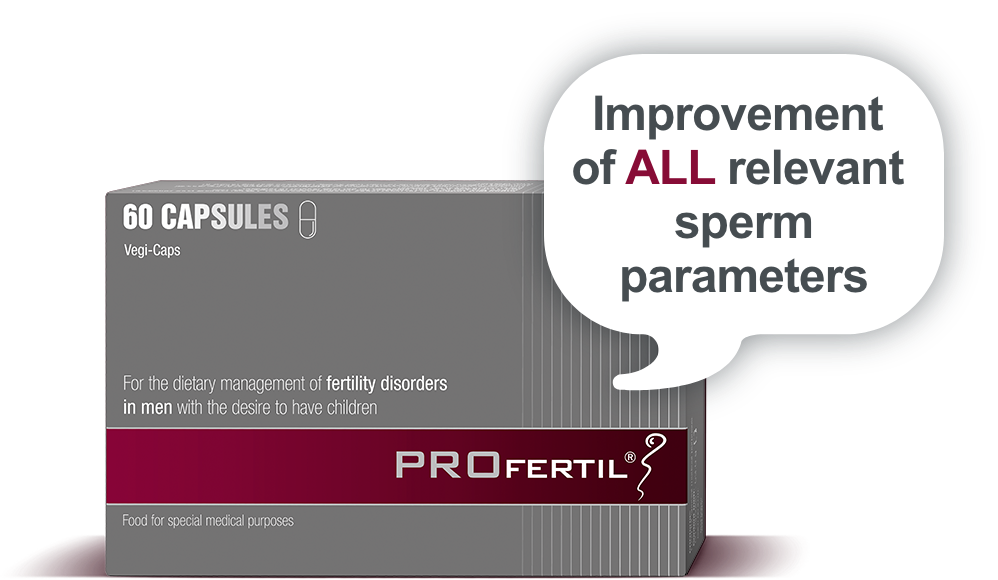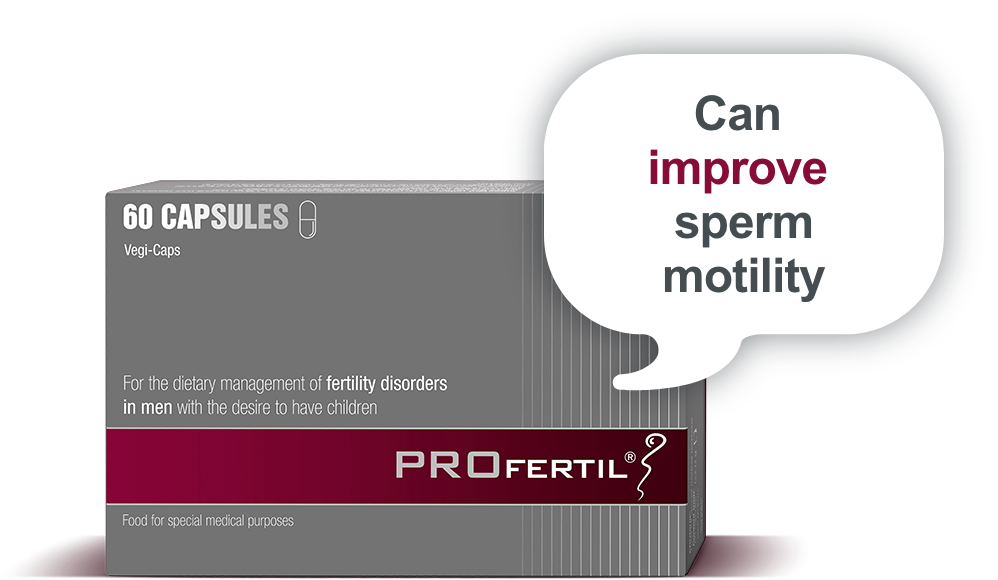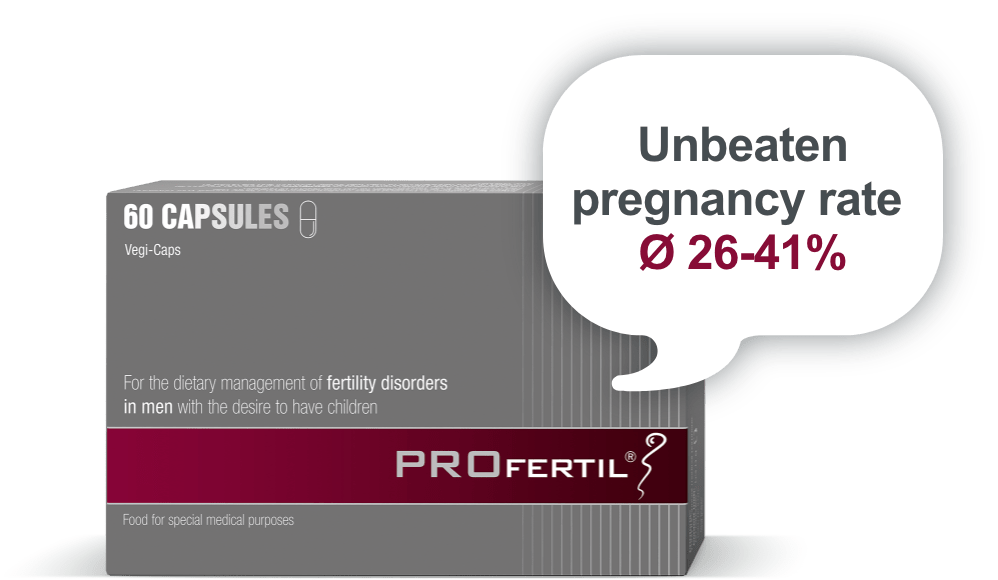
SPERM HEALTH
FACTORS
| Sperm Motility | The degree of sperm cell motility is an important factor when it comes to efficient movement within the female genital tract. If sperm aren’t fast enough, they will die before they reach the ovum (egg). Motility is divided into three categories: • Progressive motility (PR) – forward movement • Non-progressive motility (NP) – local movement (sperm that swim in circles) • Immotility – no movement Motility is classified as normal when more than 32% of the sperm are progressive. |
| Number of Sperm | The number or concentration of sperm serves both a prognostic and diagnostic function in fertility assessment. By assessing count or concentration, the amount of sperm transferred during sexual intercourse can be determined. This makes it possible to further evaluate sperm production, sperm reserves in the epididymis and the viability of the sperm transport system. |
| Morphology (appearance) | The appearance of the sperm is a decisive element in assessing fertility. This is because a sperm cell’s shape can affect its ability to reach and penetrate the ovum (egg). Human sperm can be evaluated morphologically according to different criteria, whereby microscopically determined shape disorders at the head part, the middle part and the tail part are classified differently. The morphology is considered healthy if more than 4% have a normal shape. |
| Vitality (viability) | An analysis of the proportion of living sperm cells in the ejaculate is used to determine vitality |

POOR SPERM QUALITY
OLIGOZOOSPERMIA
(too few sperm in the ejaculate) due to:
Limited production
Causes:
- Stress
- Infections
- Hormonal disorders
- Diabetes
- Operated tumors
- Location anomalies
- Genetic & environmental factors
- Alcohol or drug abuse
Disturbed sperm transport
Causes:
- Inflammation
- Varicoceles (varicose veins)
- Genetic disorders

Several studies have shown an improvement of all sperm parameters relevant to fertility (including sperm count and ejaculate volume) after taking PROFERTIL® for at least 3 months.
POOR MOVEMENT
ASTHENOZOOSPERMIE
(sperm in ejaculate do not move enough)
Studies have repeatedly confirmed that sperm motility can be improved by taking PROFERTIL® for at least 3 months. Specifically, the proportion of forward-moving sperm increased, which is an important prerequisite for the sperm cell to reach and fertilize the egg cell.

OAT SYNDROME
OLIGOASTHENOTERATOZOOSPERMIA
Three-dimensional pathological change in sperm
The three factors of OAT syndrome:
- Too few sperm (oligo)
- Insufficient sperm mobility (astheno)
- Increased number of malformed sperm (terato)
Causes of OAT syndrome
- Malposition of the testicle
- Varicoceles
- Chromosomal anomalies
- Hormonal disorders
- Infections
- Medications
- Alcohol/drugs
Studies have repeatedly confirmed that PROFERTIL® demonstrably improves all sperm parameters relevant to fertility and increases the chance of a successful pregnancy. No other formula has beaten its pregnancy rate of Ø 26-41%.
Since OAT syndrome includes a low sperm count, poor sperm movement and abnormal sperm shape, PROFERTIL® can make a significant contribution to improving fertility.

BREAKING OF DNA STRANDS
GENETIC INFORMATION IS DAMAGED
In embryonic development, genetic information is transferred to newly created cells during the process of cell division. However, if there are breaks in the DNA (if genetic information is “broken” or “damaged”), the newly created cells will be incomplete, unable to properly function, and as a result, the embryo dies. In cell division, DNA is guided like a train on rails. In the case of DNA damage, it is as if a part of the track is missing – the genetic train derails.
A sperm’s task is to safely transport the carrier of genetic information – the DNA – into the egg cell. The more breaks there are in the DNA, the more difficult it is for the sperm to perform its task. Different test methods are available to evaluate DNA damage (fragmentation rate).
It is now known that male infertility is also associated with damaged genetic material. The more sperm cells with damaged DNA, the lower the probability of successful pregnancy. PROfertil® may be especially beneficial for men over the age of 35, because at this age, the risk of DNA damage begins to increase significantly. Age related DNA damage may be linked with an increase of miscarriages 1-2).
Sources:
1) Galaviz-Hernandez et al., Frontiers in Physiology 2019.
2) Sartorius et al., Human Reprod. 2010.

Two clinical studies have shown that PROFERTIL® can protect against DNA damage. 74.6% of PROFERTIL® users had a significant increase in the proportion of undamaged sperm DNA after 3 months of use.
N. Phillips, L. Taylor, G. Bachmann. Maternal, infant and childhood risks associated with advanced paternal age: The need for comprehensive counseling for men. Maturitas, 2019; 125: 81 DOI: 10.1016/j.maturitas.2019.03.02